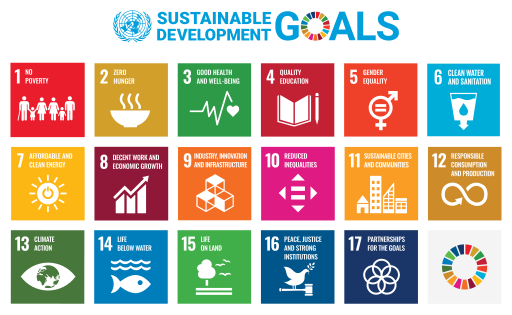RJE is actively advancing sustainable agriculture as one of its core focus areas, aiming to promote environmentally responsible farming practices that enhance soil health, conserve natural resources, and improve the livelihoods of farming communities. Through the introduction of climate-smart technologies, organic inputs, and farmer training programs, RJE supports the transition to resilient and productive agricultural systems that are both economically viable and ecologically balanced.
Sustainable agriculture is more than just farming—it's a commitment to growing food in ways that protect the environment, support rural communities, and ensure long-term food security. In the face of climate change, soil degradation, and resource scarcity, sustainable practices are essential to building a resilient agricultural system. At its core, sustainable agriculture promotes eco-friendly techniques such as crop rotation, organic fertilization, water conservation, integrated pest management, and climate-smart technologies. These methods not only enhance soil health and biodiversity but also improve yields and reduce dependence on harmful chemicals. In Bangladesh and beyond, embracing sustainable agriculture means empowering farmers, preserving ecosystems, and feeding communities—today and for generations to come.
Regenerative agriculture goes beyond sustainability—it’s about restoring and revitalizing ecosystems through mindful farming. By focusing on soil health, biodiversity, and natural cycles, regenerative practices rebuild degraded land, increase carbon sequestration, and boost farm productivity.
This approach includes techniques like cover cropping, minimal tillage, composting, and rotational grazing—all designed to work with nature, not against it. The result is healthier soil, more resilient crops, and a farming system that benefits both people and the planet.
RJE is actively working to scale regenerative agriculture across Bangladesh, partnering with farmers and local communities to implement nature-based solutions that enhance soil fertility, restore ecosystems, and strengthen climate resilience—paving the way for a more regenerative and secure agricultural future.
Alternative Wetting and Drying (AWD) is an innovative water-saving technique used in rice cultivation that helps reduce water usage and methane emissions—two critical challenges in Bangladesh’s agriculture sector. Instead of continuous flooding, fields are allowed to dry intermittently, which not only conserves water but also improves soil health and reduces greenhouse gas emissions.
RJE is actively promoting AWD practices across Bangladesh, working closely with farmers, agricultural experts, and local partners to train communities, install monitoring tools, and scale adoption. This climate-smart method supports sustainable rice production, lowers input costs, and contributes to national goals for water efficiency and climate resilience.
AWD is more than a technique—it's a step toward smarter, more sustainable farming for Bangladesh.
RJE is working closely with rural farmers across Bangladesh to build a sustainable and inclusive supply chain for agricultural products. Our integrated 'Farmer-to-Factory' approach ensures that farmers can directly connect with large-scale buyers and processors, eliminating the exploitative role of middlemen who often prevent them from receiving fair prices for their produce.
By streamlining this supply chain, RJE not only improves income opportunities for smallholder farmers but also enhances traceability, quality control, and market access for agro-products.
At present, RJE is actively engaged in sourcing the following agricultural products directly from farmers and supplying them to factories, exporters, and institutional buyers:
We are proud to partner with a growing network of agro-based startups in Bangladesh who serve as our key buyers. These collaborations are creating new market opportunities for farmers while supporting the growth of innovative, value-added agri-businesses nationwide.


House - 92, Road-05, Block-D,
Basundhara Residential Area, Baridhara,
Dhaka-1212, Bangladesh
House-37, Road-11, Block-H
Banani, Dhaka-1213 Bangladesh